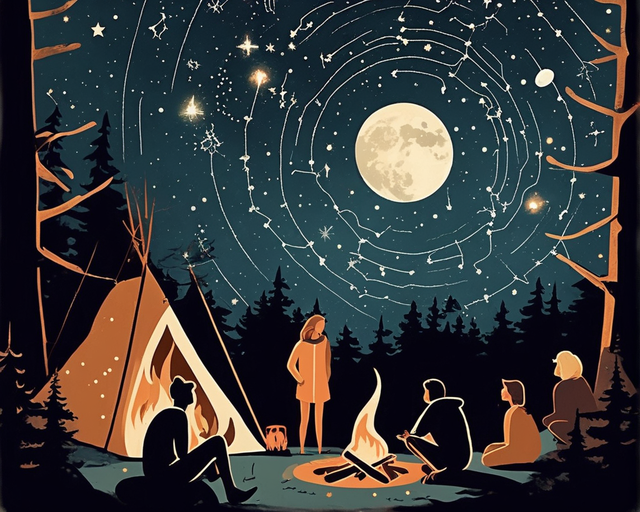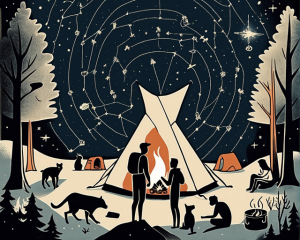Existential Wonderings: Humanity’s Quest for Purpose and Beyond


It’s a scene we’re all familiar with: lying on your back, staring up at the vast expanse of the night sky, pondering our place in the grand scheme of things. “Why are we here?” “What’s the meaning of life?” “Did I remember to turn off the oven?” – you know, the essential, cosmic questions.
Humanity’s quest for purpose is as old as our very existence. From the ancient philosopher’s musings to a teenager’s daydreams, this deep-rooted urge to understand our purpose transcends age, culture, and eras. But what prompts these existential questions? And do they suggest a deeper connection to the cosmos, or perhaps, a higher power?
Imagine our ancestors, huddled around a fire, staring at the stars and sharing stories of creation, heroes, and the mysteries of life. It’s the original Netflix binge-watching, but with more constellations and less chill. These tales, passed down generations, often grappled with life’s big questions. And while our settings have changed – from campfires to comfy couches – the questions remain.
For a touch of humor, let’s dive into an anecdote. Two fish are swimming together when an older fish swims by, nodding at them and says, “Morning, boys. How’s the water?” The two younger fish continue swimming for a bit, then one looks at the other and asks, “What the heck is water?” Sometimes, we’re so immersed in our existence that we forget to question it!
Existential musings have been at the heart of many philosophical and religious teachings. Think of Siddhartha’s journey to becoming the Buddha or Socrates questioning Athenians about the nature of life. It seems that no matter the era or culture, we’ve always been a species with a penchant for deep reflection.
Albert Einstein once remarked, “The most beautiful and deepest experience a man can have is the sense of the mysterious.” And truly, isn’t the essence of our existence the most profound mystery of all?
Some argue that this intrinsic search for meaning hints at a connection to something beyond our physical realm. C.S. Lewis, in his reflective moments, suggested that if we find ourselves with desires that nothing in this world can satisfy, perhaps we were made for another world.
On the lighter side, stand-up comedian Woody Allen mused, “What if everything is an illusion and nothing exists? In that case, I definitely overpaid for my carpet.” Ah, leave it to humor to provide a fresh lens on existentialism!
As we navigate the labyrinth of life, these questions act as our North Star, guiding and grounding us. And while the answers might remain elusive, the very act of asking connects us to a lineage of thinkers, dreamers, and seekers.
So, the next time you find yourself lost in thought, contemplating life’s grand tapestry, remember: these musings, these existential wanderings, might just be a bridge to the ineffable, a tether to the cosmos, hinting at a grandeur beyond the known.
